I am confused when to use Thread.join() and when to use synchronization in multi threading application.
According to me, both of them block or wait for the execution to be done by some other thread.
This example has to output 10 A's , 10 B's & 10 C's in sequential pattern one after other like :
1 : A
2 : A
3 : A
4 : A
5 : A
6 : A
7 : A
8 : A
9 : A
10 : A
1 : B
2 : B
3 : B
4 : B
5 : B
6 : B
7 : B
8 : B
9 : B
10 : B
1 : C
2 : C
3 : C
4 : C
5 : C
6 : C
7 : C
8 : C
9 : C
10 : C
----ProGraM ENDS----
Example starts here
class SyncTest extends Thread
{
StringBuffer sb;
public SyncTest(StringBuffer sb)
{
this.sb = sb;
}
public void run()
{
synchronized(sb)
{
for(int i=1;i<=10;i++){
System.out.println(i+" : "+sb.charAt(0));
}
sb.setCharAt(0, (char) (sb.charAt(0)+1));
}
}
public static void main(String [] args) throws InterruptedException
{
StringBuffer sb = new StringBuffer("A");
Thread t1=new SyncTest(sb);
Thread t2=new SyncTest(sb);
Thread t3=new SyncTest(sb);
t1.start();
t2.start();
t3.start();
Thread.sleep(1000);
System.out.println("----ProGraM ENDS----");
}
}
Here, output turns out to be 10 A's followed by 10 B's followed by 10 C's in a sequential order. But I can also use Thread.join instead of synchronized block to get the same output like this:
public void run()
{
//removed synchronized statement...
for(int i=1;i<=10;i++){
System.out.println(i+" : "+sb.charAt(0));
}
sb.setCharAt(0, (char) (sb.charAt(0)+1));
}
public static void main(String [] args) throws InterruptedException
{
StringBuffer sb = new StringBuffer("A");
Thread t1=new SyncTest(sb);
Thread t2=new SyncTest(sb);
Thread t3=new SyncTest(sb);
t1.start();
t1.join();
t2.start(); // wait for t1 to complete
t2.join();
t3.start(); // wait for t2 to complete
t3.join();
// wait for t3 to complete
System.out.println("----ProGraM ENDS----");
}
Can anyone clear my confusion on usage of these 2 techniques i.e. when to use Thread.join and when to use synchronization in Multi-threading on Java.
